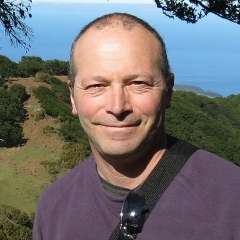The Royal Opera has assembled a stunning cast for its second revival of Kasper Holten’s production of Don Giovanni, first seen in 2014. Mariusz Kwiecień’s Giovanni is the only survivor from that initial outing (Christopher Maltman assumed the role for the intervening revival in 2015), and portrays a Don not so much rapacious as suave and gregarious, with the women falling for him as irresistibly as he does for them. His punishment, in Holten’s thinking, is not hell itself but his own personal hell of solitude – shorn of the opera’s final moralising sextet that Mozart himself cut in the opera’s first Vienna performances, the evening ends with Giovanni on a bare stage pleading to the audience. “Hell is oneself, Hell is alone” T.S. Eliot has one of his characters say in his play The Cocktail Party. The Don craves attention and has, after all, spent much of the preceding three hours, when not canoodling behind closed doors, arranging and hosting parties and dinners. It’s unusual to be affected by the Don’s demise, but Kwieceń’s musically pointed portrayal of the character’s fall over the course of Act 2 was rare in inviting pity, for all the devil-may-care arrogance revealed en route.
Ildebrando D’Arcangelo’s clownish Leporello proved a good foil, though it took a few minutes for the singer to allow the energy of his acting to serve the music – his first entry was barked, and some of the patter got out of sync with the accompaniment, but from then on the performance was as accomplished as any. Also well contrasted were the two donne: Rachel Willis-Sørensen’s Anna matched vocal agility with a gorgeous, refulgent stream of creamy tone colour – a truly memorable assumption that rightly won the most applause, for individual arias and at the curtain; Hrachuhi Bassenz’s Elvira was suitably fiery while keeping command of the focus and accuracy of her singing. Chen Reiss, making her Royal Opera debut at this performance, made Zerlina a character of both charm and guile, matched by a voice of silver brightness and clarity.
Pavol Breslik’s Don Ottavio was mellifluously sung, his “Il mio tesoro” in Act 2 a poignant and rapturously received highlight of the evening. Anatoli Sivko’s Masetto, too, was a well-rounded portrayal. And Willard White’s commanding Commendatore, as so often with this role, made one wish he had more to sing.
Marc Minkowski’s reading of the score was sometimes powered more by drama than lyricism, apparent from the force he gave to the doom-laden chords that launch the opera. Yet he also drew some subtle and well-shaped playing from the ROH orchestra, and Christopher Willis’s fortepiano continuo was supportive and tasteful rather than intrusive.
Holten’s production is surprisingly straightforward for a director of his sometimes interventionist reputation and appears to be wanting to remind us that for all the work’s serious overtones, Mozart and da Ponte classed it as an opera buffa, or comic opera – a tragi-comedy if not a black comedy. Es Devlin’s revolving, towering set presents a 3D maze of rooms, spaces, levels and walls, on to which a video stream is projected, seemingly to suggest the inner working’s of Giovanni’s mind – half-remembered names from his list of conquests, a vertigo-inducing vortex around his still figure as he summons the wherewithall for his party and so on. The visual melée could have become tiresome and it would be easy simply to fall for its technical wizardry, but the video serves instead to illuminate and comment as much as simply illustrate, being often the main source of lighting, and also adding its own humour, as when aiding Leporello’s impersonation of his master by allowing him to ‘melt’ into the scenery.
With a cast as good as this, the Royal Opera’s Don Giovanni really has to be seen and heard.




